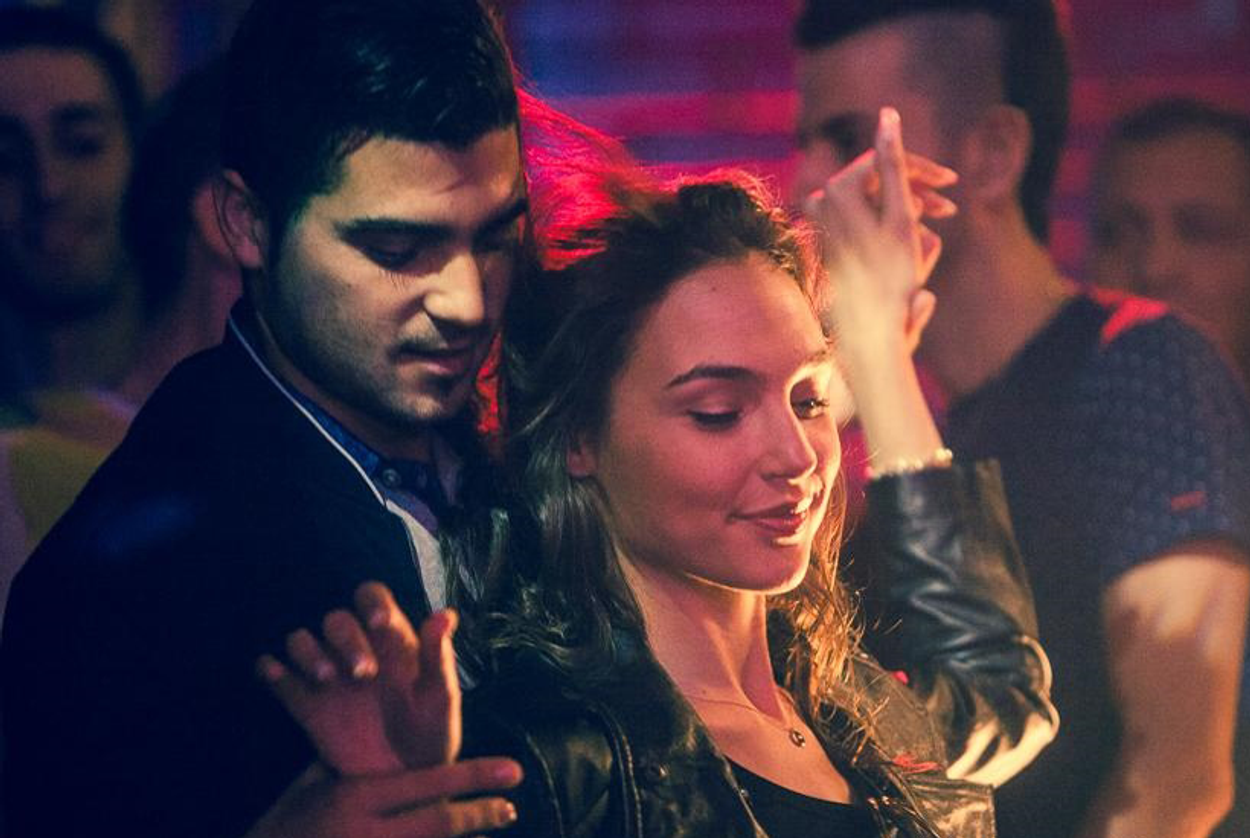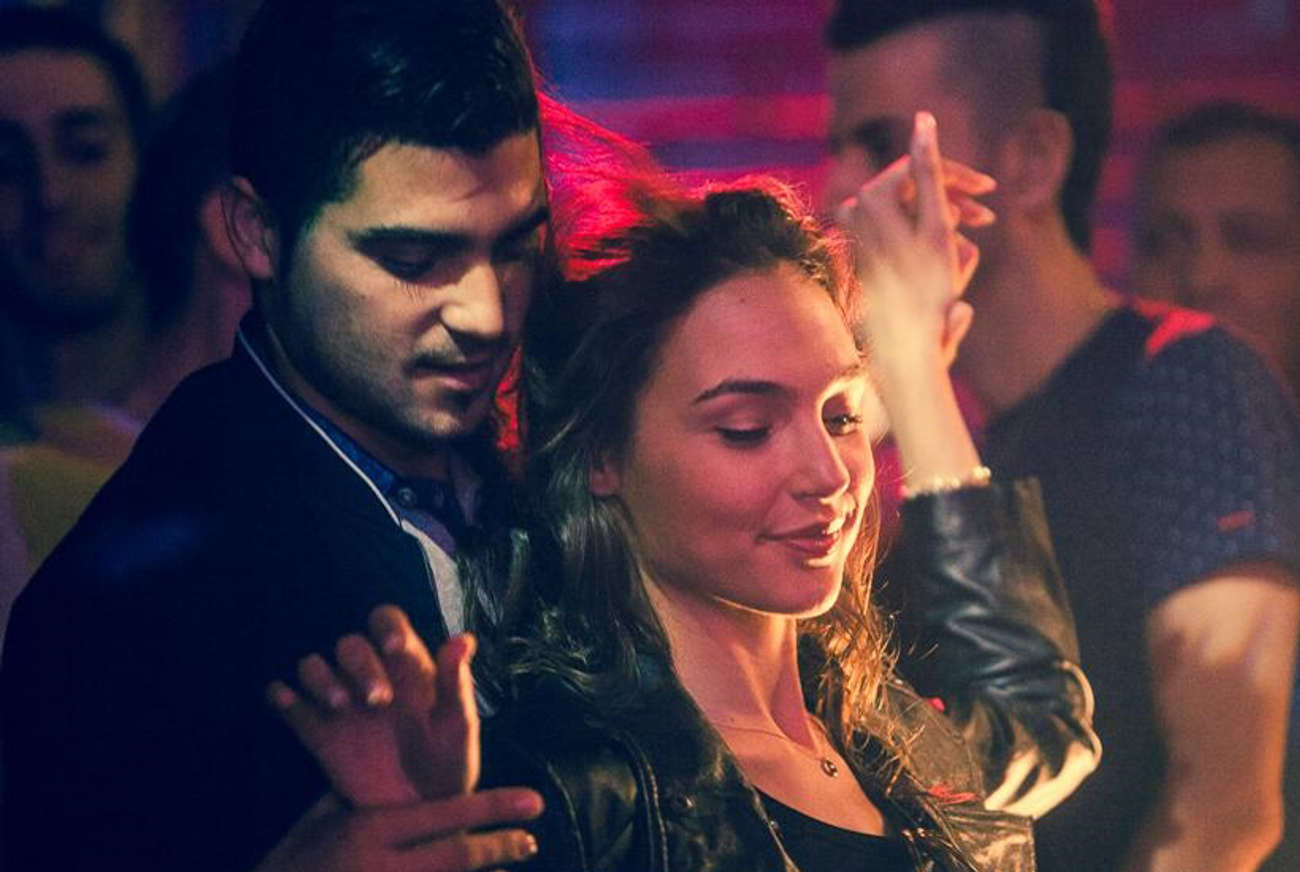Israeli Comedy Scores Points by Bringing Together Soccer and Gay Politics
In the movie ‘Kicking Out Shoshana,’ a popular athlete pretends to be gay. The result is both funny and surprisingly meaningful.




It’s been an eventful summer for Beitar Jerusalem. In June, after several young Israelis brutally murdered an Arab teenager in retaliation for the kidnapping and killing of three Jewish youths, police sources suggested that the killers were members of La Familia, a small group of several thousand fans of the iconic Israeli soccer club who are known for their extreme right-wing views and their love of violence. Shortly thereafter, when Israeli soldiers entered Gaza and peaceniks in Tel Aviv and elsewhere took to the streets to demonstrate for peace, La Familia’s minions, some wearing their favorite club’s jerseys, were caught on camera confronting the demonstrators with their fists. And then, just as Beitar seemed to be irredeemably affiliated with the actions of its most vile followers, came Kicking Out Shoshana.
The movie, a comedy released late last month, tells the story of Ami Shoshan, a star player for Bnei Jerusalem. The team is a thinly veiled version of Beitar, and Shoshan is a thinly veiled take on the prototypical Israeli baller, all machismo and chest hair and rogue charm. That charm gets him in the good graces of Mirit, played by the future Wonder Woman, Gal Gadot. But Mirit is a big-time gangster’s girl, and her boyfriend, armed and unamused, gives Shoshan a choice: Suffer a very painful removal of a key part of his anatomy, or convene a press conference and tell the entire world he is gay.
If you’re the type who questions the structural integrity of plot points, Kicking Out Shoshana probably isn’t for you. The same is probably true for anyone with a master’s degree in gender studies or queer theory: While often hilarious and blessed with a stellar cast of comic actors, the film rarely shies away from an opportunity to take a stereotype and paint it just a little bit louder. In the film’s Jerusalem, feminists are stern and humorless, athletes are apish, and gay people can barely contain themselves when the campy Eurovision song contest comes up.
Which is not to say that the movie fails to make these stereotypes funny. In one scene, for example, a newly outed Shoshan appears in front of a junior-high classroom for what is billed as an educational lecture. “Anyone here gay, lesbian, bi, or trans?” he asks, mispronouncing most of these terms, so thoroughly unfamiliar to him. The kids are quiet and their teacher is stunned by Shoshan’s direct approach, so the hapless soccer star tries a different approach. “Let me ask the question a little bit differently,” he says, “anyone here a fan of Hapoel?”
To the people for whom Kicking Out Shoshana was made—young, largely male, mostly working-class—the joke is a satisfying iteration of the stigma that sees fans of Hapoel, Beitar’s rivals from Tel Aviv, as left-leaning, mild-mannered, over-educated, spineless sophisticates. Shoshan mirrors their ignorance but, as the movie unfolds, overcomes it. Still in love with Mirit but now recognized as a hero of Jerusalem’s gay community, Shoshan learns firsthand the torments of pining for someone without being able to publicly express that love. And after his team’s intolerant supporters turn their backs on him, it’s a gay fan who gives him comfort and support. These epiphanies are just as slick and overblown as the movie’s punchlines, but that’s not to say that they’re not touching.
In part, it’s a genre thing: Kicking Out Shoshana is a rare modern-day incarnation of the “burekas film.” Named after a beloved Mediterranean pastry and popular in the 1960s and ’70s, burekas films were lowbrow celebrations of Israeli society’s socioeconomic and ethnic tensions. Thick with clichés and exaggerations, and delightfully politically incorrect, they were seen by some film scholars as pure cinematic exploitation. Other critics, however, have celebrated the genre as being a cultural pressure valve of sorts, allowing real anxieties and gripes to play out humorously on screen. Almost always, the buerkas hero is a young and canny man of Mizrahi origin whose street-smarts help him survive by fooling the dim representatives of the polite, Ashkenazi establishment, and who eventually finds both love and his place in the fabric of Israeli society.
Such is the fate of Shoshan and the rest of the characters in the movie. In one of the funniest scenes, for example, the gangster who had threatened Shoshan and his sidekick Sami, a menacing Arab thug, dress up as drag queens and set out to intercept the soccer star, who is riding high as the star of Jerusalem’s gay pride parade. They’re stopped by a policeman, and Sami, all big hair and high heels, launches into a rant about how he’s been denied his rights for too long. He’s parroting what he thinks is the whiny language of identity politics—all too foreign to tough guys like him, and designed to quell the cop’s suspicions—but, as an Israeli Arab, he’s also giving, however unwittingly, a completely candid speech about life as a member of a minority. In that moment, Sami turns from a caricature to a character, an embodiment, however underdeveloped, of very deep emotions prevalent everywhere in Israeli society.
It’s doubtful that any other setting save for soccer would have delivered such an opportunity for popular reexamination of values and attitudes, and it’s unlikely that any other team would have provided richer grounds for such an exploration than Beitar Jerusalem. As the club struggles to curb the small cabal of crazed and violent supporters, it remains, like in the best burekas films, the perfect dramatic setting for the reexamination of prejudices and stereotypes. In showing that it’s entirely possible to reconcile old traditions with new tolerance, then, Kicking Out Shoshana is not only funny but meaningful.
***
Like this article? Sign up for our Daily Digest to get Tablet Magazine’s new content in your inbox each morning.
Liel Leibovitz is a senior writer for Tablet Magazine and a host of the Unorthodox podcast.
Liel Leibovitz is editor-at-large for Tablet Magazine and a host of its weekly culture podcast Unorthodox and daily Talmud podcast Take One. He is the editor of Zionism: The Tablet Guide.